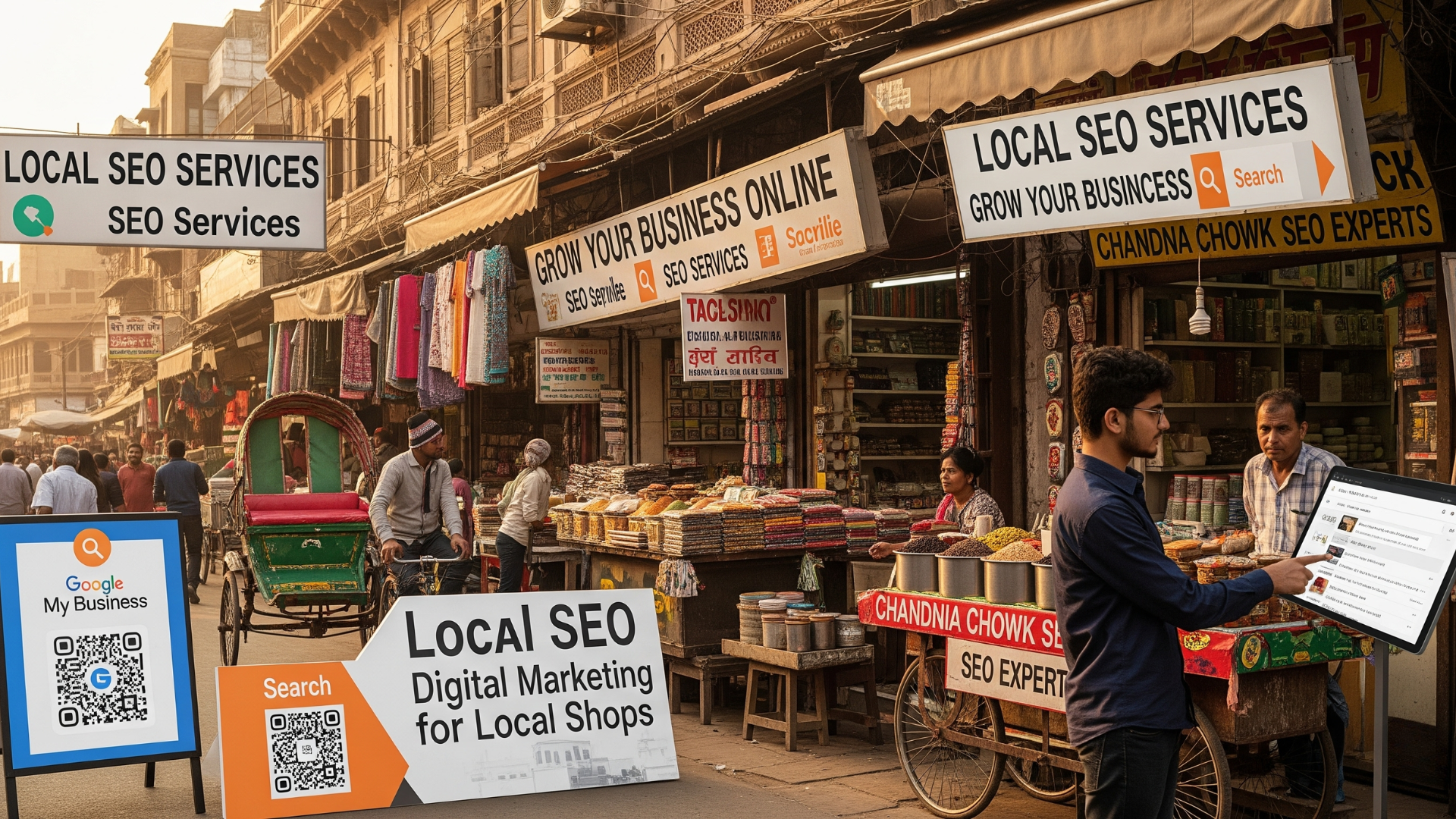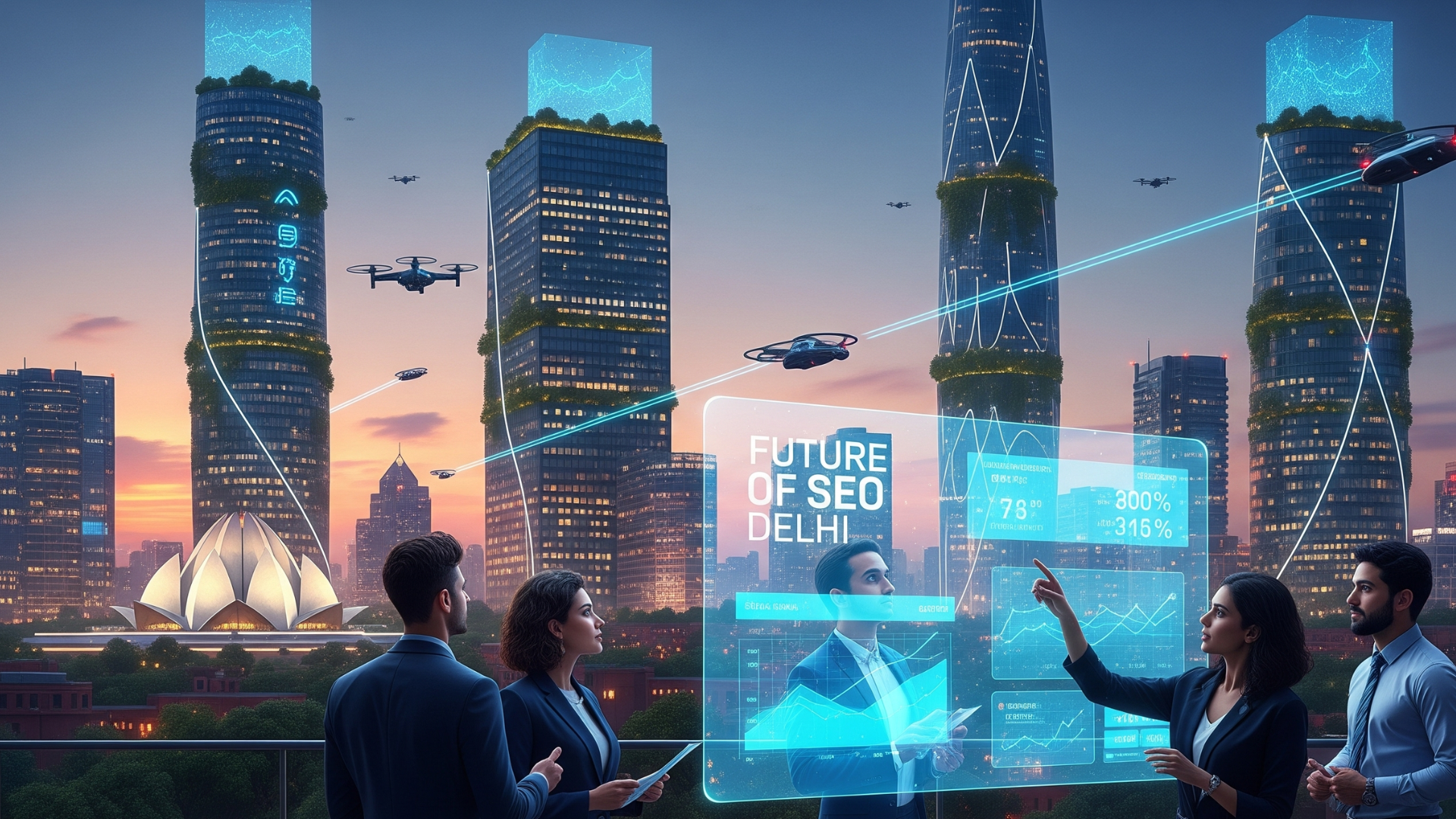- By Admin
- Search Engine Marketing
Search Engine Marketing vs. SEO | Which is Right for Your Business in 2025?
In today's very online world, business enterprises need a strong online presence in order to reach connect, and convert their clients. Two of the most useful methods of achieving this aim are Search Engine Optimization (SEO) and Search Engine Marketing (SEM). Both are aimed at enhancing rankings on the web, but they vary with respect to the way of implementation, expenses as well as the long-term benefits. It is crucial to understand the differences between SEM as well as SEO in order to determine the most suitable approach for the development of your business.
What is Search Engine Optimization (SEO)?
SEO is the term given to the process of making your website in such a way that it is able to get higher positions on organic (free) search results on search engines like Google, Bing, or Yahoo. SEO's prime concern is providing enduring, consistent web traffic by increasing your website's relevance and credibility.
SEO's most vital components are:
On-Page SEO
Meta tag optimization, headers and content, internal linking, and keyword utilization.
Off-Page SEO
Backlink building, obtaining more mentions of the brand, and increasing the authority of the domain.
Technical SEO
Speed optimization on websites and mobile responsiveness, XML sitemaps, and crawlability.
Content Strategies
Producing pertinent high-quality content that is rich in keywords and tailored specifically for the needs of the user.
SEO is a time-consuming exercise, but it can lead to consistent and effective visitors once the process is in place.
What is Search Engine Marketing (SEM)?
SEM is a wide term that encompasses SEO but usually, it specifically addresses ads which are paid via the internet (Pay-Per-Click or PPC). With SEM businesses can purchase keywords, and their advertisements appear on top or bottom of the organic results of users looking for the keywords.
Some of the main elements of SEM include:
-
PPC advertisements – Shown in Google Search or Display Network.
-
Keyword Bidding – The action of picking right search terms relevant to the business.
-
Advertising Copy Optimization – Write compelling headlines and descriptions to get more clicks.
-
Targeting Options – Ranging from location-based targeting to demographics and retargeting.
-
Budget Control – Management of ad spend for maximum return on investment.
While SEO offers an eventual exposure, SEM is an immediate exposure but ongoing cost.
SEO vs. SEM: The Essential Differences
| Factor | SEO | SEM |
|---|---|---|
| Cost | Free (natural). Nevertheless, it takes time and effort | Payable, with fees per impression or click |
| Timeframe | Long-term outcomes, months for a position | Instant visibility in a matter of hours or days |
| Traffic | Sustainable, ongoing, and free when placed in the rankings | Budget-based, it stops when the adverts stop |
| Click-Through Rates | Increased credibility by way of organic results | Ads may be seen as "paid" |
| Control | Less stringent control of algorithm updates | Full control over budget, target, and timing |
| Best For | Brand trust and long-term authority | Quick traffic, holiday campaigns, testing |
Benefits of SEO for Businesses
-
Affordable Marketing
SEO requires upfront investment in content creation and optimization. But it yields unpaid traffic once rankings are achieved. -
Credibility and Trust
User trust is based on organic results more than paid ads, assisting in creating authority for the brand long term. -
Sustainability
SEO is like creating digital assets. Once created, ranking gives ongoing visitors with no monthly charge. -
Improved ROI Over Time
Due to strong SEO, companies are able to get improved conversion rates without paying per click.
Benefits of SEM for Businesses
-
Instant Accessibility
SEM permits your business to show up in the top position of the search results within just a few hours after launching your campaign. -
Specific Targeting
Ads are targeted by geography, demographics, device usage, and more, making sure only the correct people see them. -
Flexible and Scalable
Campaigns can be optimized in real-time and modified to suit market trends. -
Information and Insights
SEM provides detailed analysis regarding conversions, clicks, and audience behavior that can help in creating stronger SEO strategies.
When Should a Business Choose SEO?
SEO is the best fit for the following scenarios:
-
The objective is sustained brand visibility.
-
You’re attempting to build trust and authority in your company.
-
You’re patient enough to wait for rankings to increase gradually.
-
You want a budget-friendly strategy that compounds returns over time.
Examples: E-commerce websites, blog sites, service providers, and long-term planning companies benefit most from SEO.
If you’re a local brand, Apricorn Solutions as a leading SEO company in Delhi can help your business gain long-term visibility and authority.
When Should a Business Opt for SEM?
SEM is more suitable in these cases:
-
You need immediate traffic to sell new products.
-
You want to test markets or keywords quickly before investing in SEO.
-
Your budget allows for ongoing paid ads.
-
You’re targeting high-competition keywords that are hard to rank organically.
Examples: Start-ups, event promotions, seasonal businesses, and companies entering new markets typically go for SEM.
Apricorn Solutions also offers ROI-driven strategies as a trusted digital marketing agency in Sonipat, ensuring faster leads with SEM campaigns.
Bundling SEO and SEM: An Effective Strategy
It’s a fact that companies don’t have to choose between SEO or SEM. The best approach is a blend of both:
-
Use SEM for recognition while SEO efforts grow.
-
Leverage SEM keyword data to improve SEO content.
-
Shift toward SEO as organic rankings improve, reducing reliance on paid ads.
-
In competitive markets, balance both methods to dominate results.
This combination ensures instant outcomes as well as long-lasting growth.
Which One is Ideal for Your Business?
Your choice depends on:
-
Budget – SEM requires ongoing spend; SEO is long-term but cost-effective.
-
Goals – For quick results, SEM is best; for consistent authority, SEO wins.
-
Competition – In tough markets, both are essential.
-
Timeline – SEM for immediate, SEO for sustainable results.
Final Thoughts
SEO and SEM both play vital roles in digital marketing. SEO builds long-term credibility and sustainable growth, while SEM provides instant exposure and targeted reach. Instead of seeing them as rivals, businesses should evaluate their objectives, budgets, and timelines to find the right mix.
If your business can afford and has the patience necessary to sustain growth, SEO is your best friend. If you need fast traffic, SEM can deliver that too. In most cases, the best strategy is to combine both SEO and SEM for maximum growth.





